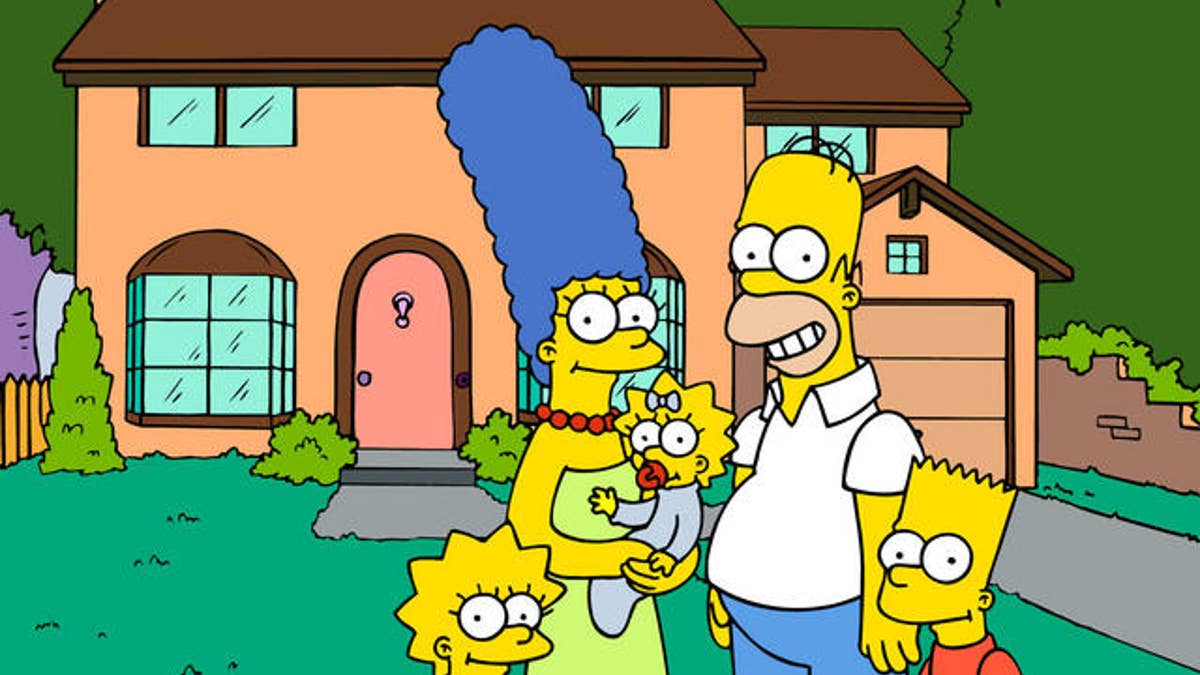
'The Simpsons' movie about the famous cartoon family came out in theaters in 2007. (FOX)
Sunday night marks the opening of the 30th season of “The Simpsons” on the Fox network. It’s a big milestone for the animated show that has not only reflected but influenced America and holds lessons for us today.
“The Simpsons” is the longest-running scripted show in primetime TV history. It tracked with Generation X’s coming of age and the onset of postmodernity. The Gen Xers – my generation – were born roughly between the mid-1960s and early 1980s.
Perhaps better than any other facet of popular culture, “The Simpsons” – with its irreverence and nonchalance – has captured the spirit of that generation, especially in the show’s early years.
For example, in an episode that aired in 1992, Homer is concerned about how his upcoming heart surgery may upset his children Lisa and Bart, who are perpetually ages 8 and 10. There’s this classic exchange:
Bart: Nothing you say can upset us. We’re the MTV generation.
Lisa: We feel neither highs or lows.
Homer: Really? What's it like?
Lisa: Ehh.
That “ehh” is more recently cast in everyday parlance as “meh.” It could be the anthem of Gen X, the minimally supervised “latchkey kids” who grew up in homes where divorce was fairly common and youthful idealism was leavened by pragmatism and a desire to have a little fun in the present.
Whereas Gen X benefitted from a balance of culture produced not only by baby boomers, but by their predecessors in the heroic World War II generation, the poor millennials have been dominated by mainstream boomer ideology since kindergarten, with predictable effect.
That lackadaisical attitude was once derided as apathetic and lazy. But this claim was discredited after the 9/11 attacks, when Gen Xers rose to the challenge of defending our nation and culture from a critical threat.
Rather, Gen X is marked by a nonchalance that the mainstream baby boomers who preceded Gen Xers – and the millennials who followed them – have often lacked.
Mainstream icons among boomers have been high-minded, aggressively emotional and self-referential. Many of the millennials Hollywood has chosen to place in the spotlight add fragility to this insufferable mix.
Whereas Gen X benefitted from a balance of culture produced not only by baby boomers, but by their predecessors in the heroic World War II generation, the poor millennials never had a chance. Mainstream boomer ideology has dominated their education and culture since kindergarten, with predictable effect.
Let’s hope their successors in the now-emerging Generation Z, born in this century, inherited what is perhaps a generation-skipping trait: the ability to lighten up and realize how good we have it here in America. It’s incredibly useful in separating BS from what’s real and important, and in keeping life’s inevitable setbacks in perspective.
Insights into Gen X are also topical today. We increasingly run things. Within most businesses and institutions, we’re the colonels, if not the generals, and our approach to life will guide outcomes over the next two decades. Frustrating the millennials is an added perk of the job.
It you want to get a glimpse of what influenced many of us, check out the first 10 seasons of “The Simpsons.” You’ll also be treating yourself to some brilliant satire – an important form of democratic art that’s under attack from the humorless poohbahs of political correctness.
Gentle iconoclasm and friendly parody abound on “The Simpsons.”
The police chief, Clancy Wiggum, is corpulent and incompetent. The mayor, Joe Quimby, is crooked and sounds like a Kennedy. The Indian-American who owns the Kwick-E-Mart convenience store, Apu Nahasapeemapetilon, gouges customers for substandard products – once even relabeling Cat Chow as Hurricane Chow for anxious customers ahead of a storm in Springfield.
The best supporting character of all is Homer’s boss, Mr. Burns. Burns is almost a parody of a parody: an ancient, completely amoral businessman and crony capitalist who once tried to block the sun to increase electricity sales.
But all the characters are allowed to be lovable in their way, something lost on some of today’s comedians who let hate cloud their cynicism and creativity – a reason for the decline of shows like “Saturday Night Live” and late-night comedy on the old networks.
Importantly, “The Simpsons” goes light on politics and has been an equal-opportunity cynic, especially in its early years.
In an episode that ran in 1993, the year Bill Clinton became president, Grandpa Simpson receives royalty checks for work actually done by Bart and Lisa. That prompts this exchange:
Bart: Didn't you wonder why you were getting checks for doing absolutely nothing?
Grandpa: I figured ‘cause the Democrats were in power again.
Meanwhile, Republican Headquarters is shown as an ominous tower where evil plots are hatched by members who include Mr. Burns, a gun-toting Texas oilman and Count Dracula.
The show has been a huge financial success for the Fox network, which is owned by the same parent company as Fox News. How long it will continue past this 30th season is anyone’s guess. New episodes have emphasized celebrity appearances over the mix of both obvious and more clever and subtle humor that marked the early seasons.
But there should be no doubt that “The Simpsons” has been the most important American satire since Mark Twain, and a reflection of the generation that’s about to run the country.
